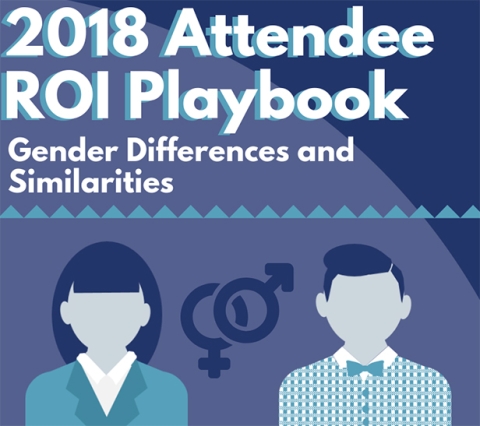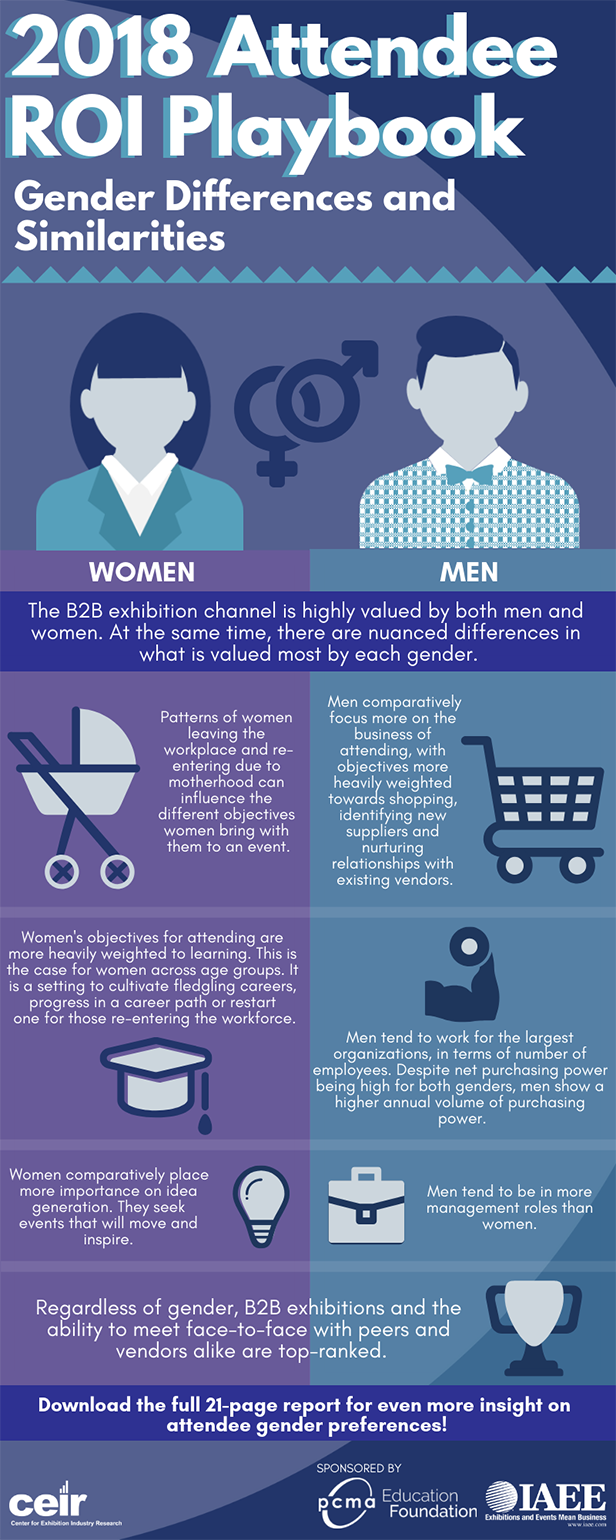CEIR’s Latest Attendee ROI Playbook Report Analyzes Gender Nuances at B2B Exhibitions

While the B2B exhibition channel is highly valued by both men and women, there are many nuanced differences in what is valued most by each gender. This is the basis for the sixth report in the Attendee ROI Playbook series, published by the Center for Exhibition Industry Research (CEIR).
Released this week, Gender Differences and Similarities takes a deep look into how gender influences what industry members strive to achieve at B2B exhibitions, how they navigate events and what is most important to them.
For example, men comparatively focus more on the business of attending events for buyer activities, with objectives weighted heavily toward identifying new suppliers and nurturing relationships with existing vendors, while women’s reasons for attendee are more focused on learning, with a desire to cultivate new skills and move up in their careers.
Women also place higher importance on idea generation than men do, seeking out events that will move and inspire them.
“One ‘aha’ for me is the importance of learning for women,” said CEIR CEO Cathy Breden. “We know B2B exhibitions are a valued resource for both men and women to get the training they need for career success, though this research speaks to unique needs for women – that learning is important at a higher rate regardless of their age.”
The report analyzes event attendees across 17 different points, including job level and function, the decision-making process for attending, purchasing influence, metrics for determining ROI, average number of B2B exhibitions attended in the past two years and anticipated attendance in the next two years.
In addition to the gender analysis, there are two major takeaways from the report for organizers to ensure their B2B exhibitions in 2019 and beyond continue to evolve with attendee preferences and behaviors.
First, similar to women, millennials in this study placed high importance on coming away from an exhibition feeling inspired, motivated and recharged. It will be important to evaluate how exhibitions can be modified to respond to this need with regard to event and booth design, meeting spaces, learning format, and special events and activities.
Second, the significance of peer information is becoming more apparent. The elevation of peers as a trusted information source for both men and women, particularly among millennials, indicates that this practice will likely become more commonplace over time.
Organizers must respond to this by considering how they’ll satisfy the demand for peer-to-peer engagement in a face-to-face setting and how they’ll personalize those experiences.
It will also be crucial to find new ways to help attendees find and connect with one another, as well as exchange reviews on what is being showcased on the exhibition floor. Engaging exhibitors to participate in these conversations as well will be the final piece of the puzzle.
Thanks to sponsorship by the PCMA Education Foundation and IAEE, the full report and all others in this series can be read for free HERE.

Don’t miss any event news! Sign up for any (or all) of our e-newsletters HERE & engage with us on Twitter, Facebook, LinkedIn & Instagram!


Add new comment